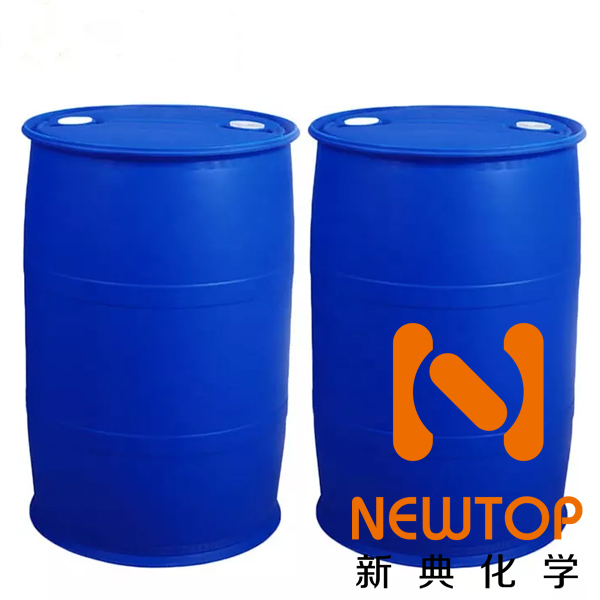Niax A-440 Delayed Tertiary Amine Catalyst Momentive
Overview:
Niax Catalyst A-440. longer creaming time for molded seats and panels. niax catalyst A-440 is widely used in the automotive industry to form polyurethane foam formulations for molded seats and instrument panels, typically delaying the opening of the pores in PU foam formulations to allow the foam pores to achieve the full strength needed to retain their shape.
Niax catalyst A-440 Delayed tertiary amine catalyst for improved foam flow foam strength for polyurethane molded foams, etc;
Niax catalyst A-440 typically delays the opening process of PU foam formulations to fully develop the strength needed to maintain the foam shape, and it is widely used in the automotive industry to formulate polyurethane foam formulations for molded seats and instrument panels.
With improved foam flow properties (which can be used in MDI molded foam applications), Niax catalyst A-440 can generally reduce the viscosity of the formulation, resulting in a foam with lower porosity and greater stiffness. Longer emulsion times mean that manufacturers typically have a wider operating window in their processing molds. niax catalyst A-440 generally contributes to more open-cell foams that are easier to use and can reduce scrap.
Potential applications for Niax catalyst A-440 include:
-Polyurethane foam formulations used in the automotive industry for molded seats and instrument panels
-Large size or complex cavity polyurethane products

Package
Packed in clean, dry, sealed and leak-free special plastic drums with a net weight of 20kg/25kg/180kg per drum.
Storage and transportation
When transporting Catalyst, it should be strictly protected from rain and staining, carefully and gently stored to prevent leakage from collision with hard objects. When storing Catalyst, it should be stored at room temperature in a ventilated and dry warehouse, avoiding humid environment, and the storage temperature should be kept below 25℃, avoiding sunlight as much as possible, and away from water and heat sources. To prevent moisture absorption and oxidation, it is recommended to fill the container with nitrogen.
Shelf life
Under proper storage conditions, the shelf life is 6 months from the date of manufacture, after which the product can be used after retesting.
Safety Information
Catalyst is somewhat toxic and should be rinsed with soapy water promptly after contact with skin. Staff can wear eye protection or safety glasses for the purpose of eye protection. Eye wash and drenching equipment should be provided near the workplace. When working in places where contact with the product is possible, attention should be paid to personal hygiene and the skin in contact with the product should be washed with washing products before eating, smoking and leaving the workplace.
Leak handling
Stop spills as much as possible while ensuring safety. If a minor spill is found, treat it with sand or other absorbent material and place it in a clean, dry container for subsequent disposal. If a large spill occurs, the spilled material should be collected for subsequent disposal. Avoid entering groundwater or surface water as the material is not readily biodegradable. All collected spilled material should be disposed of in accordance with local environmental regulations.
Disclaimers
The information and technical advice provided above has been obtained from our reliable sources, however, we make no express or implied warranties with respect to the data provided and make no promises herein. If our products are to be used, we recommend that they undergo a series of tests. The application, use, processing or production of products based on the technical information provided by us is beyond our control and therefore these responsibilities are the responsibility of the user. The condition and method of handling, storage, use or disposal of this product is beyond our control and may be beyond our knowledge, and in no event will we be liable for loss, damage or costs associated with the improper handling, storage, use or disposal of this chemical. For more information, please review the technical safety sheets for our products or contact our marketing services department.
Uses:
Promotes the reaction of hydroxyl functional groups with NCO
Safety Information:
Catalyst is somewhat toxic and should be rinsed promptly with soapy water after contact with skin. Staff may wear eye protection or safety glasses for eye protection purposes. Eye wash and drenching equipment should be provided near the workplace. When working in places where contact with the product is possible, attention should be paid to personal hygiene and the skin in contact with the product should be washed with washing products before eating, smoking and leaving the workplace.
Shelf life.
Keep unopened,two years
Storage and transportation:
Should be kept sealed and stored in a dry, cool and ventilated warehouse
Packaging:
200KG/drum Storage: It is recommended to store in dry and cool area with proper ventilation. Please fasten the lid as soon as possible after the original packaging to prevent the mixing of other substances such as water and other substances from affecting the product performance. Do not inhale dust and avoid skin and mucous membrane contact. Smoking, eating and drinking are prohibited in the workplace. After work, shower and change clothes. Store contaminated clothes separately and wash them before use. Maintain good hygiene habits.
Technical support and business contacts E-mail:sales@newtopchem.com


